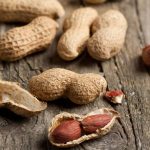Orange juice is a staple for many people during breakfast and at other times of the day. But if you’ve experienced indigestion after drinking orange juice, you might wonder whether or not you should make it a regular habit.
Orange juice may cause gas and bloating, since it contains both acidic and alkaline components that may affect stomach pH. Fructose can also cause digestive discomfort in some people. Moreover, unpasteurized orange juice may produce alcohol, which can cause irritation.
Read on to learn about the link between orange juice and digestive symptoms!
Does Orange Juice Give You Gas?
Orange juice might give you gas if you have problems processing fructose or if the drink is enriched with added fiber.
Some people are intolerant to fructose, which is the natural sugar in fruit. When fructose is not digested or absorbed properly, it leads to gas, bloating, abdominal pain, nausea, and diarrhea.
Oranges aren’t that high in fructose content. Orange juice, on the other hand, contains a lot of fructose because it is a fruit juice. It could also contain other sweeteners like high fructose corn syrup (HFCS).
About 52% to 54% of the total sugar content in orange juice is fructose (source: Nutrients).
If you happen to be particularly sensitive to fructose or HFCS, you can still enjoy these refreshing drinks. Just make sure you don’t exceed the 12-ounce limit a day, and always drink them with a meal (source: UVA Nutrition).
Another cause of gas could be fiber. Fiber-enriched orange juice has been discovered to induce minor bloating, rumbles, and flatulence according to a study (source: Journal of Parenteral and Enteral Nutrition).
The pulp of the orange contains fiber. However, this may not be enough to make the orange juice be labeled as “fiber-enriched”, so other fiber sources might be added.
If you check the USDA FoodData Central and other reputable sources, you’ll discover that orange juice with pulp has no fiber content.
If you notice that drinking fiber-enriched orange juice makes your stomach rumble, you may want to stick with regular orange juice with pulp.
Why You Might Get Gas and Bloating From Orange Juice
Orange juice has citrate, ascorbic acid, sugar, and alkali (source: Journal of Endourology). Oranges and orange juice are considered acidic.
It should be noted that acidic beverages or foods are different from acid-forming foods. In fact, the stomach contains one of the strongest acids in the world, hydrochloric acid, which is way more acidic than orange juice.
The acidity in the stomach has to be maintained in order for proper digestion to take place. Stomach acid also helps kill pathogenic microbes that could otherwise harm you.
Contrary to popular belief, the stomach is not affected by acidic foods or beverages like orange juice and won’t become more acidic. However, these acidic substances can affect the kidneys (source: Go Ask Alice).
Meanwhile, in another study, low-calorie orange juice has been found to contain alkali and citrate. Low-calorie orange juice is used as a dietary option for alkali therapy.
Alkali is a compound that neutralizes acids. Alkali therapy is a treatment for metabolic acidosis such as chronic kidney disease.
Since orange juice has alkaline qualities, this might alter stomach pH depending on how much you drink. This is because the stomach has to maintain its highly acidic nature otherwise digestive issues could arise.
If stomach acid pH increases, pathogens like H. pylori could invade and cause damage (source: Halperin Chiropractic). Some of the symptoms of H. pylori infection are bloating and repeated burping.
Another factor could be alcohol, which can cause irritation and inflammation in the stomach in some people.
A study in Germany found that some types of fruit juice, specifically orange, grape, and apple juice, contained ethanol (source: Journal of Analytical Toxicology).
Most, if not all fruit juices in the US are pasteurized. However, this isn’t always the case for other countries.
Pasteurized juices are basically free from any bad bacteria that could spoil the juice or cause harmful effects to humans. On the other hand, unpasteurized juices can contain bacteria or other organisms like yeast because they were not heated (source: Michigan State University).
If these organisms are present in the juice, they can act on the fructose in the juice. Fermentation could commence and hence the production of alcohol.
Can Orange Juice Help with Gas?
As previously described, orange juice has both ascorbic acid and alkali compounds that could theoretically affect gas in a positive way. How much you drink, how often, and what food you drink it with are factors that could affect this.
But this has yet to be proven by more research. We hope this helped shed some light on the link between orange juice and gas!








Comments are closed.